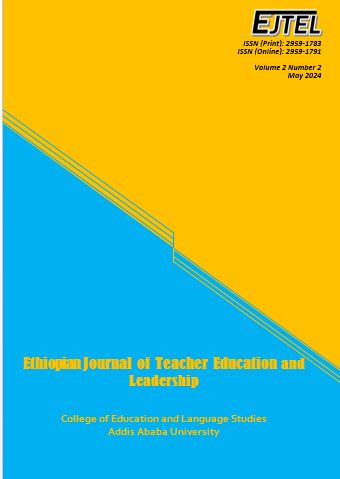Unveiling the Challenges of Corruption and Academic Dishonesty in Ethiopia: An Overview of the Nature, Magnitude, Consequences, and the Way Forward
DOI:
https://doi.org/10.63990/ejtel.v2i2.12443Abstract
The paper examines the challenges that Ethiopia is facing in systemic corruption and education sector academic dishonesty (cheating), and the links between the two and the deleterious effect on the quality of education and the production of competent human power. Corruption in general and academic dishonesty in particular are spreading in Ethiopia. The objectives of this study are to present the highlights of the findings of a National Corruption Perception Survey conducted in 2021 and the synthesis of nine empirical studies on academic dishonesty in Ethiopia, published in the past ten years. The overwhelming majority of the participants (i.e 80% of 6,627) have indicated that corruption is widely prevalent in all sectors, including the education sector, though land and revenue administration, municipalities, the judiciary, and police are reported to be more corrupted than others. As further corroboration of the situation of corruption in the education sector, focusing on academic dishonesty, the empirical studies reviewed indicate that cheating in examinations, plagiarism, recruitment of weak teachers, falsification of qualifications/documents, favoritism or nepotism in the assessment of students are widely prevalent in high schools and higher education institutions in Ethiopia. Researchers have widely reported that academic dishonesty has a positive relationship with workplace dishonesty.

